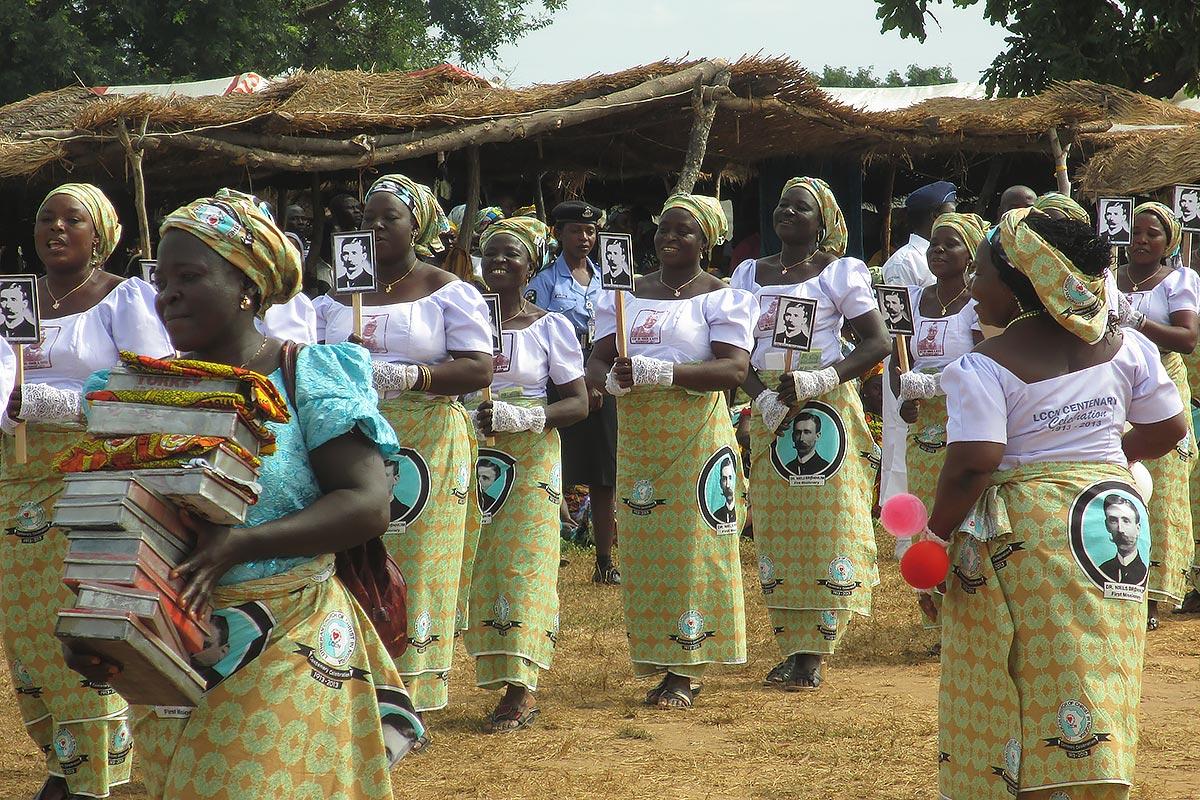Look up the tally of land and houses owned by women in Nigeria, and you might reckon that most women in the country are trapped in poverty. But that’s just part of the story. An intricate reality, shaped by custom and a broken legal system, is much at play.
Roughly 10% of landowners in Nigeria are female, and, compared with 24% of men, just 2.5% of women solely own homes. Even among educated and working-class women, property ownership remains abysmally low, often because of traditional stereotypes.
This grim reality is what C.S. Uzor, a barrister based in Anambra, eastern Nigeria, labels “the invisible wall.” This obstacle, Uzor says, “isn’t the absence of law, but it’s a [reflection] of the power of culture.”
Custom over constitution
Across Nigeria, property ownership is still considered an exclusive preserve of men. Many families bequeath ancestral land to only male heirs. Daughters, on the other hand, are expected to inherit property from their husbands instead.
Meanwhile, “a woman who loses her husband can lose her home the same week,” Uzor notes, adding, “In-laws move in, take over property, and justify it with custom.”
More often than not, many widows allow the seizure without question, because the idea that property equals male authority is widespread across villages and cities.
Nigerian law recognises equal rights to ownership. The 1999 Constitution offers every Nigerian the right to acquire and own property across the country, prohibiting discrimination based on sex. But custom—not law—is sought during inheritance disputes, says Uzor.
“They go to family elders or religious leaders, and that’s where women lose out.”
In Igbo customary law, for example, female children cannot inherit their father’s estate. Among some Yoruba and Hausa communities, widows are deemed caretakers rather than owners.
Because “a woman who insists on her right to inherit may be labelled disrespectful or greedy,” Uzor remarks, many are often pressured to surrender land to male relatives to foster peace.
Systemic bias against women
But this prejudice is not exclusive to family inheritances. It thrives even in formal settings such as banks and courts.
Some Nigerian banks, especially those in rural areas, still “advise” women to present their husbands or kinsmen as guarantors when seeking loans.
Land-registry forms continue to use gendered terms like “head of household,” insisting on a husband’s consent before processing documents.
For women who cannot easily register property, the fallouts are devastating. They struggle to access bank credit, trapping them in a cycle of economic dependency. Even as women produce up to 70% of Nigeria’s food, less than 15% own the land they use for farming.
Fuelling this illegal practice is limited education. Most of Nigeria’s laws are crafted in dense terms that few understand. This creates a loophole that’s exploited by state rulers and unscrupulous officials alike.
There’s also a problem of inconsistency. Some states have no specific statutes regulating customary inheritance, thereby leaving outcomes to judges’ discretion.
Modest progress
In a 2014 landmark case, the Supreme Court declared the Igbo customary law barring female heirs from inheritance as void. If the court’s ruling signalled victory for gender equality, Uzor notes that its impact has been slow in rural areas “as though it never happened.”
Nigeria is a signatory to CEDAW (the Convention on the Elimination of All Forms of Discrimination Against Women) and the Maputo Protocol—two notable interventions tackling the gender gap in property ownership.
What’s more, states like Lagos, Kaduna and Anambra are enacting reforms to promote women’s land access.
National economic reforms, such as the Renewed Hope Housing Programme and National Financial Inclusion Strategy, aim to expand access to credit and home ownership. But bureaucracy and cultural resistance are formidable threats.
“Until the law is enforced with the same passion that custom is practised, progress will stay cosmetic,” Uzor remarks.
She maintains that a mix of enforcement, education and empathy is necessary to implement reforms.
Digitalising land records and beefing up the legal aid system could also reduce the need for discretion, thereby rooting out injustice.
According to UN Women, countries that ensure women’s property rights experience faster economic growth and stronger community resilience.
Summary not available at this time.






